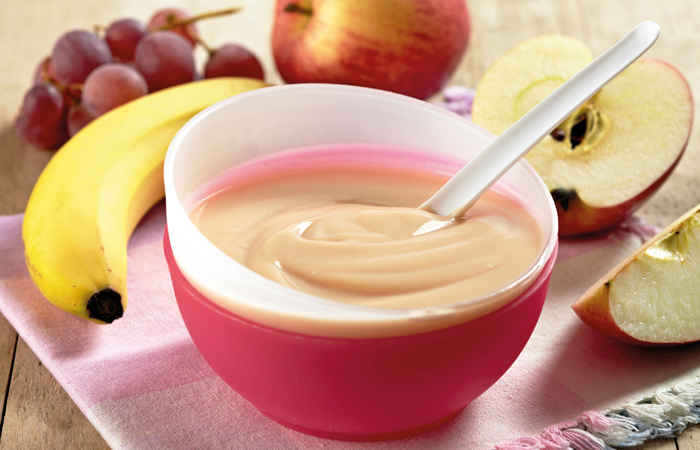5. Ask the experts
In Weaning
Follow this topic
Bookmark
Record learning outcomes
Weaning can be a challenging process for parents who want to ensure their toddler is getting the best nutrition. Here’s how our experts would answer these common weaning queries

 What are the signs that a baby is not getting the right diet or enough to eat while they are weaning?
What are the signs that a baby is not getting the right diet or enough to eat while they are weaning?
![]()
”If a baby is not getting enough to eat, he/she will start to fall below their normal growth line (centile) on the growth chart,” says Geraldine Goodman, community dietitian, Dietetic Department, Cumberland Infirmary. “Babies not getting the right balance of foods in their diet are unlikely to show obvious signs for a while and so it is important to make sure that your baby is having foods from each of the main food groups, including: meat, fish, pulses and eggs; potato, rice, pasta, yam, bread and cereals; fruit and vegetables; milk, yoghurt, cheese and custard. If a parent is concerned that their baby is not growing properly, they should discuss this with their health visitor or GP.”
 Why is it best to start the weaning process with vegetables?
Why is it best to start the weaning process with vegetables?
![]()
“Vegetables are great sources of nutrients and are easy, safe foods to offer to babies as their first foods. They are cheap, easy to prepare and also very versatile as they can be mashed, puréed or offered as soft finger foods,” says registered nutritionist Charlotte Stirling-Reed, BSc (Hons) MSc. “As babies are born with a preference for sweet foods, they don’t often need encouragement to enjoy eating fruit. However, vegetables have a variety of different tastes – some bitter, some sour – so it is a good idea to start getting baby used to these different flavours right away. Familiarity is key to babies’ acceptance of new foods, so it’s important to encourage parents to continue offering a variety of different tastes, textures and flavours to baby during complementary feeding.”
If parents have any feeding concerns they should be referred to a healthcare professional for further advice
 What foods should not be given to a baby during the weaning process?
What foods should not be given to a baby during the weaning process?
![]()
Boots UK nutritionist Vicky Pennington says that babies should not be given:
- Before six months: cows’ milk, eggs, wheat, gluten, nuts, peanuts, seeds, fish, shellfish, liver,soft or unpasteurised cheese
- Added sugar, salt or stock cubes
- Honey before one year of age
- Whole nuts until the age of five
- Raw or undercooked eggs
- Low fat or low calorie foods
- Too many high fibre foods, or foods with added bran, which fill a baby up. Also, too much fibre interferes with absorption of important minerals such as iron
- Shark, swordfish, marlin (the mercury in them can affect the nervous system) or raw shellfish
- Tea, coffee, fizzy drinks or squash.
 When a baby starts eating solids, how will their bowel movements change? What are the signs that something might be wrong?
When a baby starts eating solids, how will their bowel movements change? What are the signs that something might be wrong?
![]()
“The stools tend to get firmer and darker and may become less frequent. The appearance of the stools will depend on what has been eaten,” explains freelance paediatric dietitian Tanya Thomas, BSc (Hons) RD. “Signs that something is wrong may be straining, pain, infrequency or difficulty passing a stool. These may indicate constipation, which can occur at weaning with the change in solid intake. If stools are very loose or frequent, this may indicate an intolerance to some part of the weaning diet.”
Vicky adds: “If parents have any feeding concerns they should be referred to a healthcare professional for further advice.”
